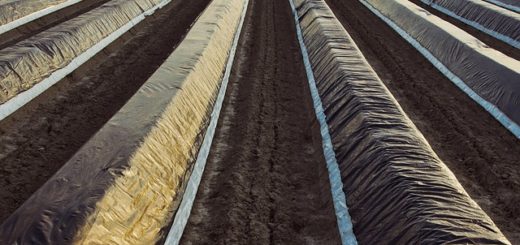Master Scholarships in Soil Science
ERASMUS+ Mundus Joint Master Degree in Soil Science (emiSS) is organized by a consortium of five Universities: Ondokuz Mayıs University (OMU-Turkey), University of Agriculture in Krakow (UAK-Poland), Agricultural University Plovdiv (AU – Bulgaria), Southern Federal University (SFedU – Russia), Jordan University of Science and Technology (JUST- Jordan). Ondokuz Mayıs University is the coordinating institution of the emiSS Consortium.
The aim of emiSS is to raise and meet the need for qualified and skilled soil scientists at the master level through a training programme bringing together soil science (soil physics, chemistry, biology and hydrology, soil genesis and classification, soil pollution and reclamation), management (soil erosion and conservation, land use, planning and management, soil health and quality), fertility (fertilizers and fertilization, soilless culture, composting and vermicompost), soil ecosystem (soil biodiversity, soil-plant-water relationships, soil C sequestration and storage, etc.), intercultural competence and language skills.
To achieve this, the programme will benefit from the integration of scientific fields under the roof of Soil Science and Plant Nutrition of each consortium university participating in the emiSS, where their strength lies.
Ondokuz Mayıs University stands out with scientific research and publications in the fields of soil-plant-water relationships, organic waste management, land use, planning and management, soil microbiology and composting techniques; the University of Agriculture in Krakow in soil genesis and classification, soil mineralogy and micromorphology; Agricultural University Plovdiv in soil fertility, plant nutrition, fertilizer application and soil chemistry, mineralogy and reclamation of damaged soils; the Southern Federal University in soil chemistry, soil pollution and reclamation and Jordan University of Science and Technology in soil salinity and soilless culture, fertilization.
Soil is one of the most important natural resources covering the world alongside air and water. All micro-macro flora and fauna living in the ecosystem meet their food requirement directly or indirectly from the soil. Recent developments in the natural resource and environment sciences evidenced that soil is the basis of major ecosystem functions recognized scientifically. That it houses vital nutrients supporting different land covers and types (forest, pasture and agriculture); regulates the temperature of the earth besides its key role in controlling the emission of various sera gases; prevents drought and floods in water basins with its water holding and storage capacity; and is a natural refining environment in terms of pollution are amongst the main functions of the soil system.
Furthermore, soil, water and air pollution is reduced with new and creative soil management strategies against industrial, urban and agricultural pollution which seriously endanger the environment and human health and the performance of the ecosystem is increasing.
Ecosystems present various functions providing viable environment and conditions for the nourishment, shelter of creatures and for them to sustain their generations. There are great pressures on natural resources, and especially the soil, up from the civilizations founded to this day.
Factors such as climate change, especially unhealthy industrialization due to rapid population growth, unplanned urbanization, misuse of land, increase in pollution, decrease in and/or extinction of species endangers biodiversity, thus the sustainability of the ecosystem. It is impossible to alter the natural pedogenesis process as well as producing soil through technological means and no other resource can be used instead in case it’s lost.
Therefore, it is evident that we should act more responsibly towards soil compared to other natural resources. There is a need for trained experts in the field of human resources for the preservation and sustainable management of soil which is an important and nonrenewable natural resource throughout the world.
As the scope of the programme planned to be opened is international, it will contribute to the in-field specialization of the soil scientists coming from various ecosystems or the specialization of staff from different scientific fields in the field of soil science. Soil constitutes the first link of the safe food chain to be established for the healthy nutrition of the world population and the basis for food safety.
The practical significance of the results of the project in the education of Master’s Degree specialists will be the preparation of highly qualified experts in the field of Soil Science, who can be involved in practical, scientific and innovative activities as both academic and engineering staff.
This project was created to provide MSc training in the following topics: soil-plant-water relationships, land use, planning and management, soil microbiology and composting techniques, soil chemistry, soil pollution and reclamation; soil genesis and classification, soil mineralogy; soil physics and hydrology; soil erosion and conservation; soil salinity and soilless culture, fertilization. Each one of these topics constitutes directly the scientific research and training topics of Soil Science. The strong side of this programme is that it is formed by universities from various geographies with a certain scientific level in the field of universal Soil Science and application in practice.
As it is, the soil scientists awarded the MSc degree will not only be equipped with the universal theoretical know how, but learn on-site the soil management, solution methods and efficient and healthy use of soil in topics such as climate change and food safety in different geographies.
This will no doubt contribute important strengths to the compatibility of students graduating from the programme.
Who is eligible?
- Students from all over the world are eligible for an Erasmus+ EMJMD scholarship.
- Students with a double nationality (of a Partner and of a Programme Country) must specify the nationality under which they submit their scholarship application.
What is included in the Erasmus+ EMJMD Scholarship?
1. Contribution to the participation costs;
- The tuition fee will be fully covered by the scholarship contribution and the Consortium.
- 4,500 € per year for a Programme Country scholarship holder
- 9,000 € per year for a Partner Country scholarship holder
- Any amount in excess of these contributions will be covered by the Consortium and will not be charged to the scholarship holder
2. Contribution to the travel and installation costs
- Programme Country: 1,000 € per year per scholarship holder resident of a Programme country
- Partner Country: 2,000 € per year for travel costs + 1,000 € for installation costs for a scholarship holder resident in a Partner country whose location is situated at less than 4,000 km from the coordinating HEI- 3,000 € per year for travel costs + 1,000 € for installation costs for a scholarship holder resident in a Partner country whose location is situated at 4.000km or more from the coordinating HEI.
3. Contribution to subsistence costs
- Monthly Contribution: 1,000 € per month for the entire duration of the EMJMD study programme (24 months maximum).
Principles and regulations
- Erasmus+ EMJMD scholarships can be offered to students from any region of the world, taking geographical balance into account: no more than 3 candidates from the same country (with the same nationality) should be awarded an Erasmus+ EMJMD scholarship during the same intake.
- The student candidate / scholarship holder declares to not have already benefited from a previous EMJMD scholarship or an Erasmus Mundus Master Course/Joint Doctorate scholarship.
- The student candidate / scholarship holder commits to not benefit from another EU funded scholarship scheme to follow the same EMJMD course for the entire period of the course.
- The financial support shall be repaid by the scholarship holder in case of fraud or false declaration.
Consortium Scholarship
- Consortium scholarships are available to European and Non-European students who did not obtain the Erasmus+ EMJMD scholarship.
- This scholarship consists in a reduction of the total of the tuition fees of €9,000 for programme country students and €18,000 for partner country students.
For more information: https://emissmaster.omu.edu.tr/








